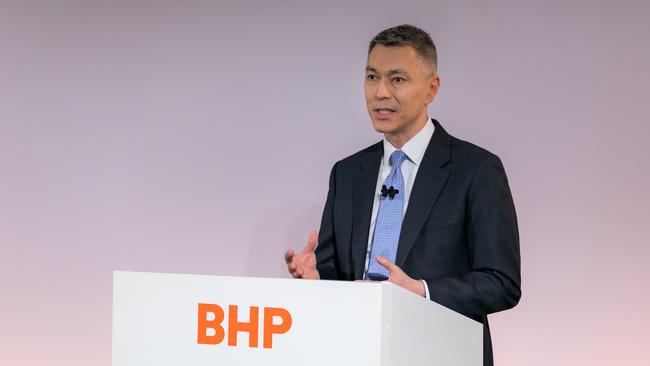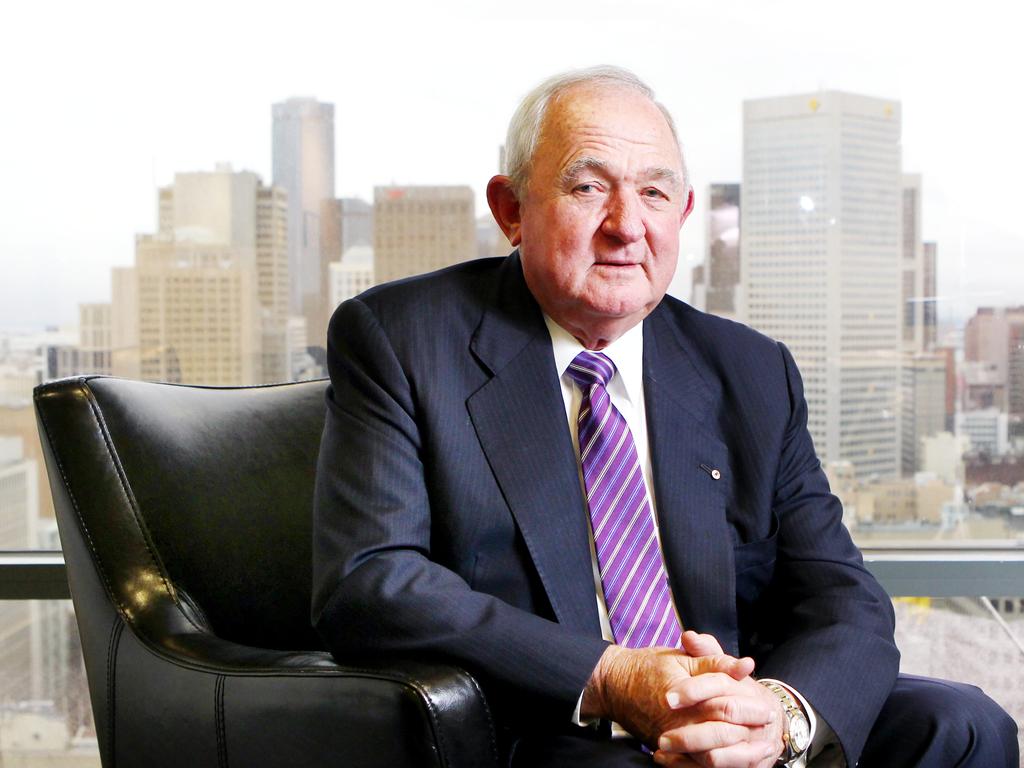London licks its wounds after BHP blow
BHP’s plan to leave the FTSE 100 has prompted further debate about the attractiveness of the UK listing regime.

At least BHP picked Britain over Australia for one thing. London was the location that Mike Henry, the Canadian businessman who runs the miner, chose to announce plans to move its primary listing to the Australian Securities Exchange.
It was the start of a charm offensive with the City in an attempt to avoid the sort of rebellion faced by Unilever, the consumer goods group, when in 2018 it tried to scrap its Anglo-Dutch corporate structure and leave London, only to be derailed by a backlash from UK institutional investors including Aviva, Legal & General, M&G and Schroders. Like BHP, it would have resulted in it dropping out of the FTSE 100, requiring tracker funds to sell their holdings.
Mr Henry repeatedly told analysts that he hoped shareholders in the London-listed company would continue to hold shares, either through a secondary listing in London or directly in the primary listing in Australia.
“Notwithstanding the fact that we are coming out of the index, I am personally committed that shareholders in the plc (the London-listed company) remain shareholders in the new unified entity,” he said.
BHP, which traces its roots back to 1851, is at the heart of the global energy transition. On one hand, it holds a big oil and gas business; on the other, it has a controlling stake in some of the world’s most important copper mines, a key commodity needed to decarbonise. It plans to exit oil and gas through a merger of its assets with Woodside Petroleum, an Australian rival. The deal would give BHP shareholders a 48 per cent stake in the new company.
“It’s an incredibly rare, well-run company that you can’t replicate,” one British fund manager said. “You can’t find a mining company as well-run, with a history of delivering extremely attractive shareholder returns.” City sources said that BHP’s scrapping of its primary London listing was different to the situation with Unilever.
BHP’s drifting away from London has been a long time coming. About 5 per cent of its profits come from the assets held by BHP plc, the London-listed business, with the vast majority coming from those held by BHP Ltd, the operation listed in Sydney. The structure has become tax-inefficient because, as it has grown, so, too, has the transfer of value from the Australian business to shareholders in the UK-listed company. Every time the transfer occurs, Australian franking credits, or Australian tax refunds, are wasted.
“I think it would be very hard to argue that you should unify Billiton on to the UK stock market, it has literally nothing to do with the UK,” another UK fund manager said. “This is an Australian asset at its core.”
Elliott Advisors, the New York-based activist fund that holds a 4.7 per cent stake in the company, put pressure on BHP four years ago to simplify its corporate structure. Elliott ran a campaign placing billboard adverts along a road used by Australian executives for their route to work, reading: “Tell BHP it’s time for CHANGE.” The campaign was rejected by BHP in 2018, when it said that Elliott was taking a “particularly optimistic view” of the benefits of unification. Elliott declined to comment.
So what’s changed since then? The ratio of profits from its assets across the two businesses has shifted further in favour of Australia, Mr Henry said. A unified structure would make deal-making easier, too, including its plan to merge its oil and gas assets with Woodside Petroleum.
The company is thinking about how it can be “as agile and efficient [as possible] be going forward”. On that basis, “unification makes sense”, Mr Henry said. The estimated cost of the unifying the structure also has fallen by about a third to about $US500 million.
BHP’s plan to leave the FTSE 100 has prompted further debate about the attractiveness of the UK listing regime. The Financial Conduct Authority is consulting on rule changes that will allow companies that hand founders more influence over a business than other investors the ability to join the most sought-after category of the London Stock Exchange. The change would allow companies with dual-class share structures such as The Hut Group, the online retailer, which has a £6.9 billion market capitalisation, to join the FTSE 100.
Sir Martin Sorrell, chairman of S4 Capital, the UK-listed digital advertising business and a City grandee, said he hoped that the move by BHP would be a “trigger” for the government to focus on making London a more attractive listing environment.
“It doesn’t look good when a major-cap company disappears from the index. The competition between stock exchanges is so great. London has to do a little bit more to be an attractive destination.”
The Times



To join the conversation, please log in. Don't have an account? Register
Join the conversation, you are commenting as Logout